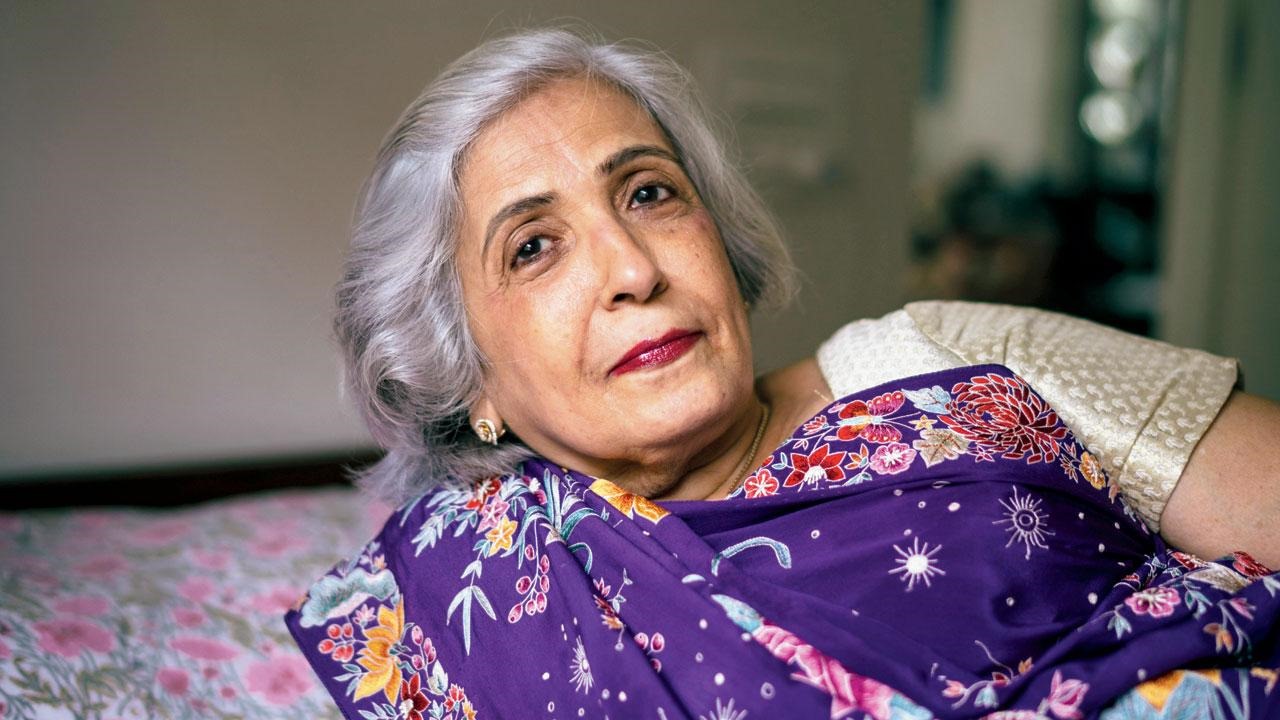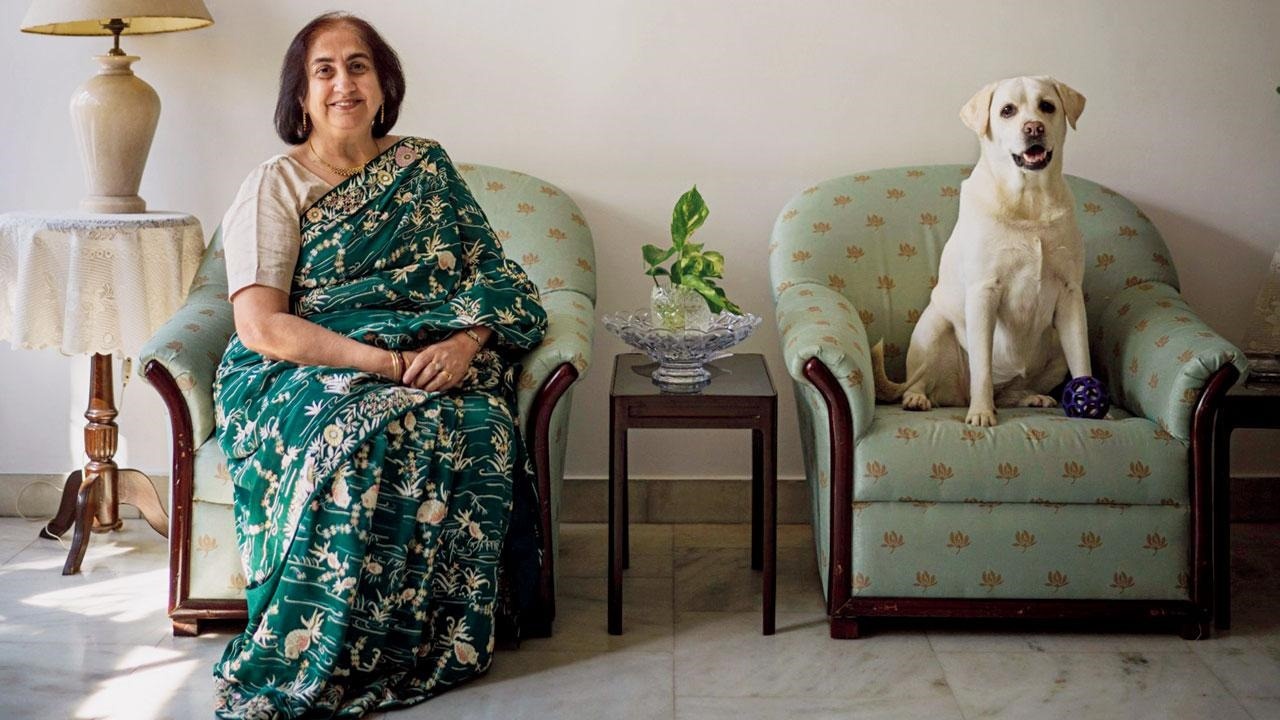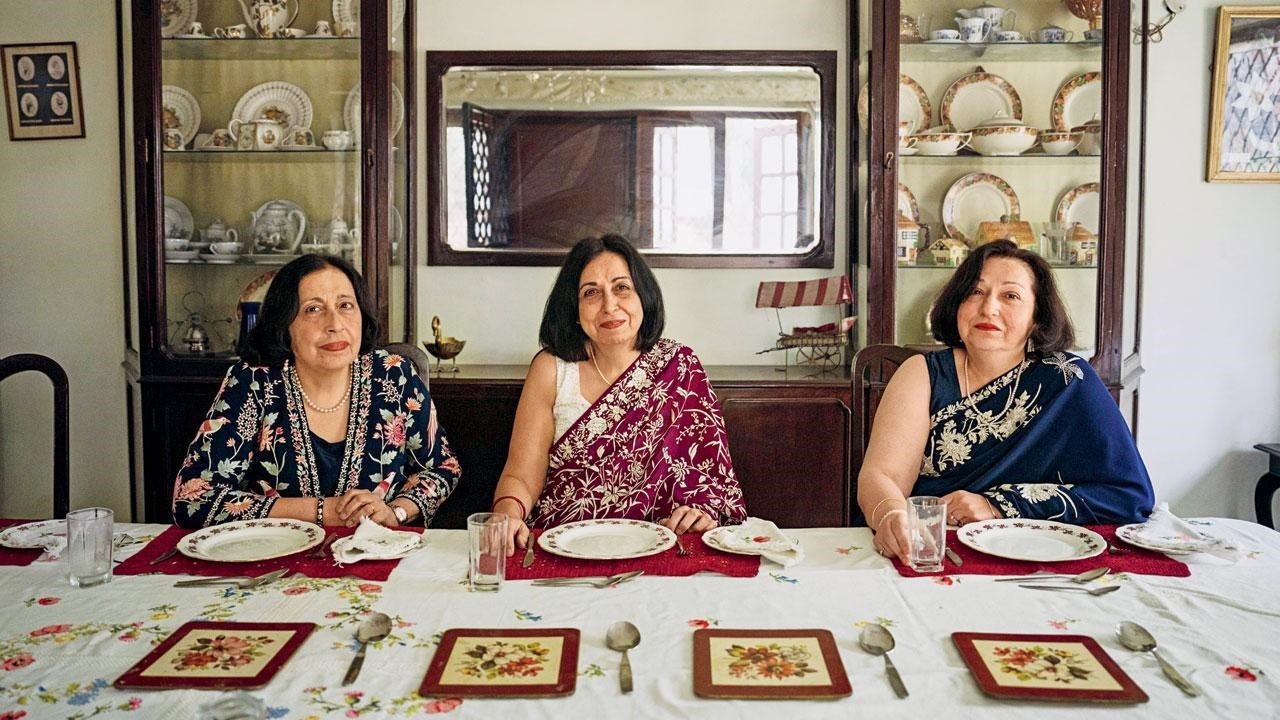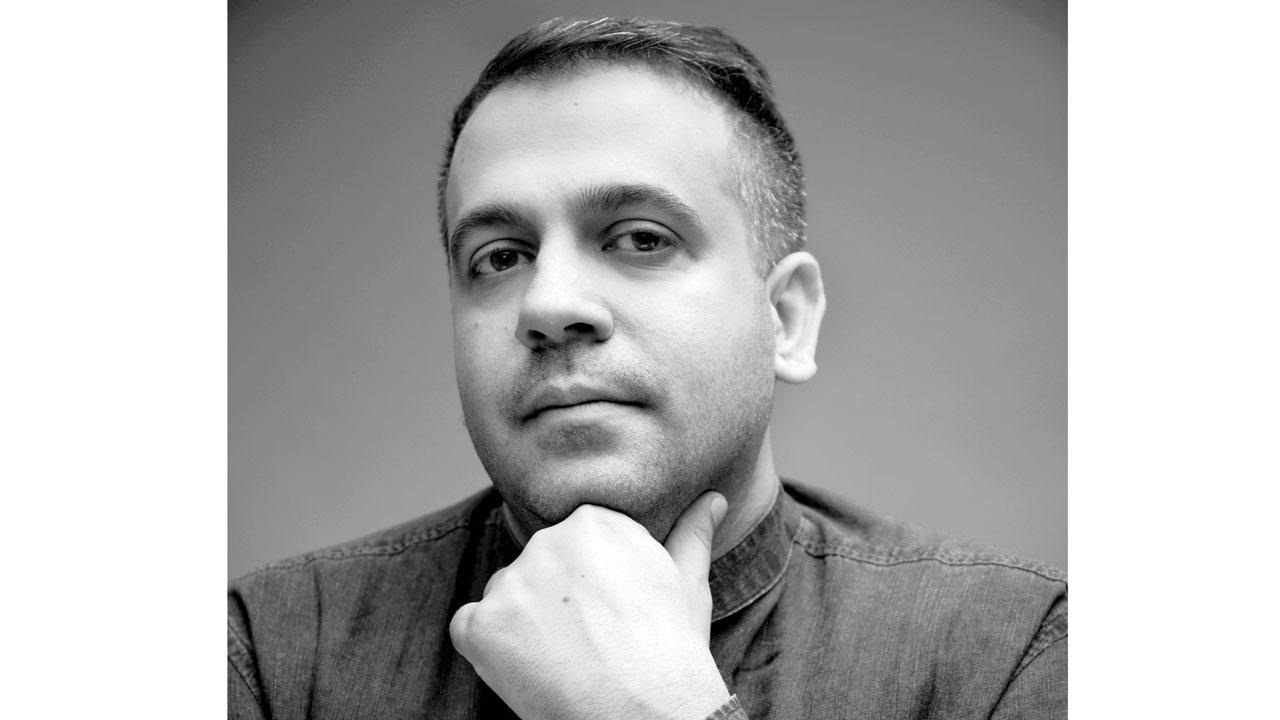A new photo exhibition that begins tomorrow tells the inspiring stories of 13 non-Instagram influencers and the Parsi Garas they wore
Article by Shweta Shiware | Mid-Day
Based in New Delhi, sisters Dr Niloufer Shroff, Rukshana Shroff and Dr Shernaz Cama run the UNESCO Parzor Foundation that works toward preserving Zoroastrian community and culture. “Famously known as ‘the Sethna sisters’, they have guided and helped my research in Parsi Gara embroidery,” says Ashdeen Lilaowala. Pics Courtesy/Rema Chaudhary
Kerman Mehta, pianist and social worker, emerges from the photograph seated, hands clasped, facing us. A lick of sunbeams gently dabs the Art Deco side-table hooded in net linen that sits at her elbow. Her face fills the frame and her dappled skin is a landscape of lived experience. And there, seated right next to Mehta in her New Delhi home, you have Maggy, holding our gaze with her slight head tilt. Is Maggy posing, or just caught unaware by the camera? Or is Maggy being Maggy?
In another portrait, entrepreneur Shernaz Lilaowala is reclining on a bed sheathed in a floral block print design at her Godrej Baug home in Mumbai. She is captured in an in-between close-angle moment — part posed, part candid. Her silver bob framing deep, endless concentric circles of eyes; searching, wondering and staring somehow both at us and into the abyss. “This portrait of my mom really captures her elegance,” says her proud son, Ashdeen Lilaowala who is also the designer behind the namesake label founded in 2013. Inspired by centuries of Oriental and Persian hand-embroidery craft traditions, the label is known for fusing the traditional Parsi Gara aesthetic with a contemporary look.

“When I started working on the photo series, my mom said jokingly: ‘if you do it without me, I’ll kill you,’” admits Ashdeen Lilaowala about his “mothership” Shernaz, who runs an independent insurance company. He calls her “mothership” to draw attention to her tough love and unconditional support. “The other day somebody asked me if I use the term, ‘mothership’ as a noun or a verb. I said, ‘I am using it as a Gen Z word.’”
To celebrate a decade in the Indian fashion and textile space, he commissioned acclaimed photographer Rema Chaudhary to create a photo series titled, Threads: A Decade of Ashdeen. “Rather than throwing a big party or mounting a retrospective, we decided to celebrate the milestone in a way we know best — by telling stories of women who have impacted my professional and personal growth positively,” explains Lilaowala.
The intimate portraits, he says, are shot in the subjects’ own homes. “The idea was to give a glimpse into our Parsi heritage.” And it’s this here-and-now focus that becomes our window into the women and their private spaces, which Chaudhary uses to give a sense of time and place. They are all wearing Parsi Garas — many of them from his label. “I love that he thought to celebrate this milestone by giving centre stage to these women who have quietly helped shape him and his practise over the years,” says Chaudhary, who travelled to New Delhi, Vadodara, Hyderabad and Bengaluru to photograph 13 women at the forefront of science, philanthropy, education, culture and fashion.

“It’s not like I have known her forever but from the day I met her in Delhi, she took me under her wings,” Ashdeen Lilaowala says of the pianist and social worker, Kerman Mehta. By simply showing up, she supported the “young Parsi kid” and his newly launched namesake clothing label that retailed at various pop-ups. She would spend the whole day at his stall, teaching him how to close a deal, and making sure that a keen customer didn’t leave without making a purchase. “If Kerman aunty were a CEO, she would be running the company to full-on profits.”
The list includes Roshan Cama, homemaker; Mackie Majra, philanthropist and social worker; Mala Sinha, textile designer and founder of Bodhi; Cherazad Pestonji and Maniza Patny of Anahita, a multi-designer store; Rukshana Shroff, author and teacher; Delna Mistry, DLC founder; Malini Banerjee, fashion editor. “He [Ashdeen] gave me a brief history of each woman and how they have contributed to his journey for reference but gave me absolute freedom to follow my instinct,” Chaudhary says.
Each portrait is an acute glimpse of private contemplation made public. Their faces and stories take on added meaning when seen in conjunction with detailed captions citing their individual achievements while also establishing the bond Ashdeen shares with them. “They may not be Instagram-famous,” Lilaowala says in an almost forewarning tone. “But they are brilliant women who have achieved a lot in their personal lives and careers. I find their great taste, generous hearts and the conviction to go against the grain endlessly inspiring.”
Take, for example, physicist and educator Dr Niloufer Shroff who worked with the cosmic rays and space group at Imperial College, London, and in the sensor development division at ISRO Ahmedabad. Or Aditi Ranjan, Lilaowala’s former teacher at National Institute of Design (NID). “I graduated in 2003, and despite a decade of experience running my own label, every time I design a new textile, there’s a little voice that intuitively asks me:
‘Would Aditi approve of this?’”
The title of the exhibition is an honest and human reaction of the intricate web of relationships, while also telling visual stories of the intricate Parsi Gara tradition and handiwork of Lilaowala’s skilled team. “It’s thrilling to be part of the next frontier of the Gara incorporating new nuances every season, and hopefully, sparking new conversations,” he shares.
Opens: Tomorrow till October 21
At: Ashdeen Store, Vaswani House, Colaba
Call: 9820403250; 9820814910
Through the lens
“I approached these women with the same respect and consideration that I would like to receive in front of the camera. I gave them a lot of space, allowing them the time they needed to feel at ease, even embracing the awkwardness because I think there is something very real in that.”
– Rema Chaudhary, photographer


